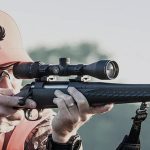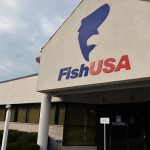Jarden Corp. upped its long term EPS guidance saying it was confident it can sustain 3% to 5% organic growth even if consumers stay closer to home to cut spending. President and COO Jim Lillie also said he expects the Jardens Outdoor Solutions business to pick up market share if Wal-Mart shrinks shelf space for sporting goods.
“The phenomenon we see now is our major customers doing more things with fewer suppliers,” Jim Lillie told his audience at the Goldman Sachs Global Retailing Conference held last week. “Having the number one and two brands, we tend to be leading in that process.”
Jarden, whose brands includes Coleman, K2, Rawlings, Shakespeare, Volkl and Campinggaz, among many others, claims to have the number one market share position in baseball gloves and bats, camp stoves, fishing, lanterns, skis and bindings, sleeping bags and tents.
Lillie specifically cited how the companys fishing business might add shelf space at Wal-Mart, which accounts for 19% of Jardens sales.
“Many of you heard that our number one customer, Wal-Mart, is possibly shrinking shelf space in sporting goods, but in doing so we think there is an opportunity for us to do more business,” Lillie said. “So even though the pie may be shrinking, our piece of the pie – we feel very confident – will at least stay the same and in many cases will grow.”
Lillie also said he sees a lot of opportunity to grow Jardens technical apparel business, which includes Marmot, Ex Officio, Volkl, Marker, Planet Earth and other brands.
“There is no reason why Coleman and certain channels in mass should not be selling fleeces and rain related gear,” he said. “If you look at Marmot, we believe Marmot could be a much bigger player. Marmot does not do a lot of activity in teen and child wear.”
Lillie said Jarden could spur organic growth by licensing its brands to makers of products outside its core expertise. Marmot, for instance, could be licensed to makers of eyewear or altimeter watches.
“We have a great treasure chest of brands,” he said.
Lillie released new long-term EPS guidance at the conference after noting Jarden is on track to hit $3 per share this year, or just over Wall Streets consensus estimate of $2.90. Its new EPS target is $5 per share by 2011, up from $3 by 2010. This assumes 3% to 5% organic growth with no significant acquisitions, Lillie said.
Even if families stay closer to home, Lillie does not see a big impact on Jardens business, including its ski business. “I grant you people are not going to rush out to buy a $1,500 pair of Vokl Tigershark skis,” he said. “But those who ski and ski on a regular basis are going to need to update as they go. They are going to have to equip their children.”
He noted that a record 2007-08 ski season means people were out using and abusing their skis, which helped drive pre-season sales this spring. “We had a very good sell in and quite frankly we build all our skis to order, so 80% to 90% of the skis we already have orders for,” he said. “So we already know what our sell in is. We have very good visibility going out four months, six months or seven months into the future.”
The unknown factor he said is what price points consumers will be buying. “Across the entire range of our business that really is the question on the table,” he said. “Not whether you are going to buy it, but at what price point.”












